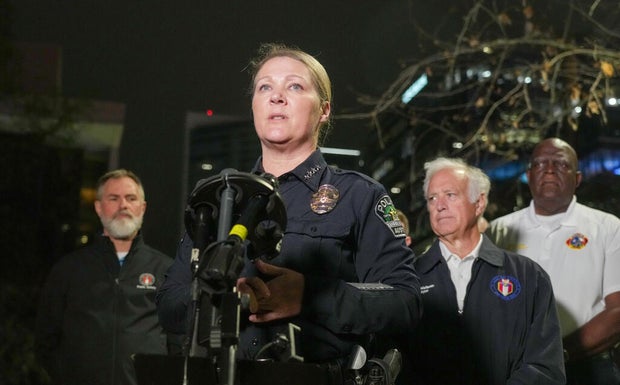Home Office minister Jess Phillips has said that “disinformation” spread by Elon Musk about grooming gangs in the UK and the government’s response is “endangering” her life.
Phillips has come under sustained attack from the technology billionaire, who has labelled her an “evil witch” and “rape genocide apologist”, while calling for her to be jailed.
Britain has been convulsed in recent days by a dispute over the handling of historic grooming cases involving sexual exploitation of girls by gangs of mainly British-Pakistani men after Musk called for a new national inquiry into the scandal.
Musk’s outbursts against Phillips, who holds the safeguarding brief in the UK government, began after it emerged she had rejected a request by Oldham council for the Home Office to hold a Whitehall-led inquiry into the grooming scandal in the Greater Manchester town.
The Home Office has instead urged the local authority to undertake its own review, citing precedents for probes in other towns afflicted by rape gangs, including Telford and Rotherham, while highlighting a national inquiry into child sexual exploitation that concluded in 2022.
On Tuesday Phillips told the BBC that threats to her own life had increased since Musk’s salvos against her on his social media platform X, describing the situation as “very tiring”, but adding: “I’m no stranger to people who don’t know what they’re talking about trying to silence women like me.”
However, she added that her treatment at the hands of Musk was “nothing” in comparison to the experience of abuse victims.
Phillips told Sky News that SpaceX-owner Musk should “crack on with getting to Mars” and expressed her anger at political opponents, including Tory leader Kemi Badenoch, who have pushed for a national inquiry into grooming gangs after Musk made the same demand.
Musk has been approached for comment.
UK Prime Minister Sir Keir Starmer issued a staunch defence of Phillips on Monday, paying tribute to her record defending female victims of violence and abuse.
Phillips’ comments came after shadow justice secretary Robert Jenrick conceded the Conservatives could have “done more” to crack down on sex abuse gangs while in government.
Jenrick defended the previous Tory administration’s record, but he told the BBC: “Could we have done more, should we do more now? Yes, absolutely — we have to root this out.”
He said a review by Professor Alexis Jay, who chaired a seven-year national inquiry into child sexual abuse in England and Wales that reported in 2022, only looked at rape gangs in six towns, but added they may have operated in up to 50.
Jenrick also defended his party’s criticism of the Labour government’s decision not to launch a Whitehall-led inquiry into the scandal in Oldham.
Challenged over the refusal of the last Tory government to launch an inquiry into rape gangs in Oldham, he said the previous request came from a “small number of councillors”, while the recent one was by the local authority itself.
Jenrick, who stood unsuccessfully for the Tory leadership last year, defended his controversial comments last week that mass migration of people to the UK from “alien cultures” with “medieval attitudes towards women” had contributed to the scandal.
He said he would not “disguise” or “sanitise” his language to avoid causing offence, pointing to evidence that fear of being labelled racist had contributed to authorities failing to take action against gangs that mainly involved men of Pakistani heritage.
Starmer has accused Conservative politicians of “amplifying what the far right is saying” on child sexual exploitation, after failing to act “for 14 long years”.
Jay on Tuesday said there had been “politicisation” of the issue and warned that a fresh probe could delay the implementation of her review’s recommendations.
She criticised people for having “waded into the argument” over the issue “in a very uninformed way”.
Jay has previously criticised the former Conservative government for failing to implement the main 20 recommendations in her 2022 report, which warned of “endemic” abuse across society.










































